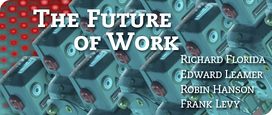Ed nails it. We need to be more concrete. I like his example a lot. I should: my team and I have actually worked a lot in parts of this region, especially Syracuse, Ithaca, and Corning.
I think we can do more than disaster relief. This is why I developed my theory and approach. I think it provides some real levers that communities can push on. In this region, I have to say, some remedial training on tolerance would be useful, but only to some extent. There are other even more pressing things that need to be, and are starting to be, done.
I could go on and on about this, but I propose another approach. I am going to try to get the leadership of the region to comment on how and where our approach and work helped them and, conversely, where it did not.
I have long been a strong believer that an important way to advance theory and understanding is to get in the trenches, not just to to see how things work, but to see how tangible improvements can be made.
Thanks Ed!

